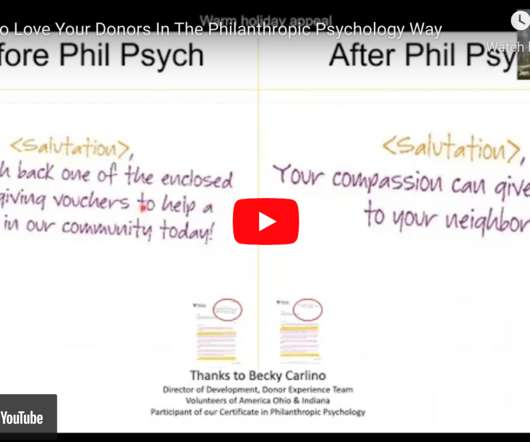7 Things I learned From #Beth53 Fundraiser and PoST Class
Beth's Blog: How Nonprofits Can Use Social Media
JANUARY 13, 2010
I asked the students what else does that? One lesson is that if your fundraising platform doesn't allow this flexibility, don't use it. For example, I noticed that Spencer Brodsky , who I helped last December when he was doing a fundraiser campaign for his project in Rwanda, re-tweeting the birthday call to action.












Let's personalize your content